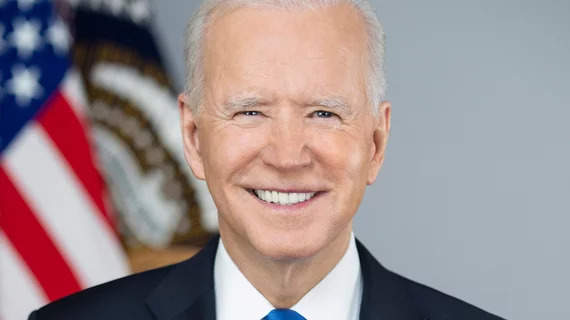As ‘right to repair’ debate continues, hospitals go after surgical robot company
President Joe Biden signed an executive order this month aimed at preventing certain device manufacturers from limiting independent repairs of their products. The medical device industry is one of the executive order’s many targets—and there is already plenty of evidence that this will be a hot topic for healthcare providers in 2021 and beyond.
For instance, as Axios reported, several hospitals have accused Intuitive Surgical of forcing them to purchase expensive maintenance and repair packages for its da Vinci surgical robot. The company is not commenting on these lawsuits at this time, but the lawsuits do show that providers are ready to fight back if they feel threatened.
Biden’s executive order is a clear sign that the “right to repair” conversation is surging forward—and people from both sides of the debate are pushing to make their voices heard.
The editorial board for the Los Angeles Times, for instance, recently described current repair policies for certain consumer products as “unfair,” “extremely wasteful” and “environmentally destructive.”
“Everyone should have the absolute right to fix the stuff they’ve purchased, including the digital components within,” the group wrote.
The executive order—and the “right to repair” movement in general—also has fierce opponents. Tom Giovanetti, president of the Institute for Policy Information (IPI), wrote an editorial in the Wall Street Journal detailing how “left-leaning public interest law firms and activist groups … have been trying for years to undermine intellectual property protection through ‘right to repair’ campaigns in state legislations.”
In addition, the Medical Imaging and Technology Alliance came out against the executive order, emphasizing that medical devices can’t be treated the same as other consumer products such as phones and farm equipment.
Stay tuned for more as this story continues to unfold. The battle over independent repairs of consumer products is one that could have a massive impact on healthcare providers, including cardiologists, and device manufacturers for years to come.

